Morocco Banking: Development of Credit Agricole du Maroc Banking Services in Morocco
Crédit Agricole du Maroc, Director General, Karim Tajmouati
Morocco’s economy, which is a debt-based economy (at least domestically), continued to be supported by the banking sector.
Interview with Karim Tajmouati, Director General of Crédit Agricole du Maroc
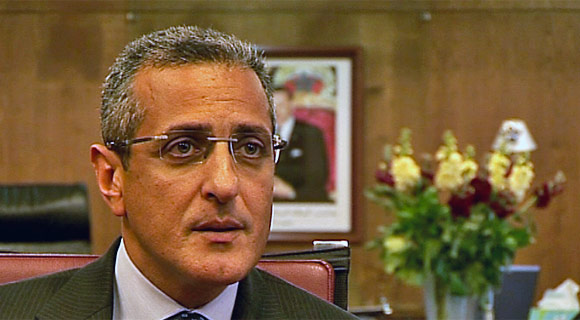
Can you give us a global view of the banking sector in Morocco? What is its current state given the world’s financial crisis?
Morocco’s banking sector managed to handle the financial crisis relatively well. It avoided excessive damage, and banks, whether private or publicly owned, continued to develop remarkably. Also, Morocco’s economy, which is a debt-based economy (at least domestically), continued to be supported by the banking sector. The government itself took an active part in handling the crisis. 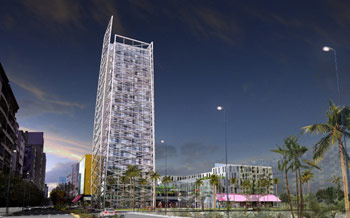
Yes, the world was hit by a crisis; and Morocco is connected to the world. But within this economic climate, the goal has been to put particular effort into development, infrastructure, the private sector, SMBs, and all economic sectors likely to add value to the market in the long term. The banking sector has been a key element of the economy throughout the crisis.
Morocco’s economy, which is a debt-based economy (at least domestically), continued to be supported by the banking sector.
How do you think the regulatory environment could be modified, in order to simplify/liberalize the banking system in Morocco?
I see it the other way round. In Morocco, the financial lawmaker is fundamentally independent, and plays a decisive and proactive role. If the Moroccan banking system is living through the crisis in a very satisfying manner, it is thanks to the lawmaker’s strict regulations issued every month since 1993, in line with international standards in terms of risk management (Basel II standardized norms, IFRS). The lawmaker urged all Moroccan banks to implement these norms. We bankers are rather grateful for this constant pressure.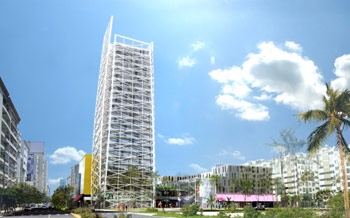
This is a similar situation to that of Lebanon, where strict rules first put off bankers but saved them eventually when the crisis occurred.
The regulation policy, launched in 1993 under the leadership of the Central Bank, aimed at securing banks’ balance sheets and assets; and it did have the same effect as in Lebanon indeed. The Moroccan banking system has been able to quite satisfactorily cope with the harsh economic climate that we have been facing since 2009.
We are now to consolidate the financial foundations of the country as well as banks’ governance (and governance of financial institutions in general). We need to make them perfectly able to back an economy likely to grow significantly in the next 5-10 years.
What sectors are occupied by most foreign investors? What measures can be undertaken in order to stimulate foreign investment? 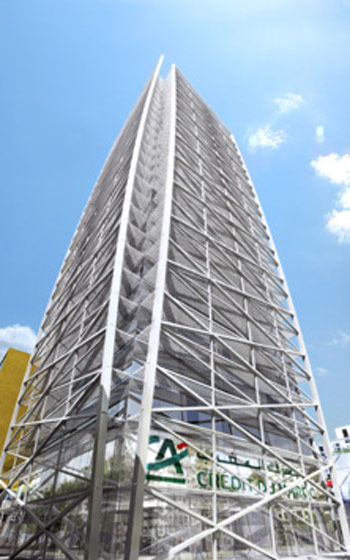
Crédit Agricole du Maroc wants to carry out a public-service mission. It finances and supports agriculture and rural development. So the Crédit Agricole du Maroc policy revolves around two key concepts:
conform strictly with the regulatory rules established by the lawmakers – basically being the normal universal bank, while putting efforts into that public-service mission.
Crédit Agricole du Maroc is a good illustration of Morocco’s “Green Plan”. The Green Plan has two goals:
1) supporting social development amongst cultivators
2) modernizing the various fields of agriculture and agro-industry.
At the same time, Crédit Agricole du Maroc is supporting national economy through businesses as well as private individuals. As you said, an extraordinary potential lies in the relatively low penetration of banking services in Morocco. Considerable progress has been made already, but a huge potential remains unexplored. If all banks joint their efforts towards that goal, I think Crédit Agricole du Maroc will have a choice position in the process, because of its strong presence in rural areas often neglected by other banks. In these areas, having a bank account is a requirement for modern life and its services.
Many North African banks have turned to Africa in order to grow internationally. Does Crédit Agricole du Maroc have international growth prospects? 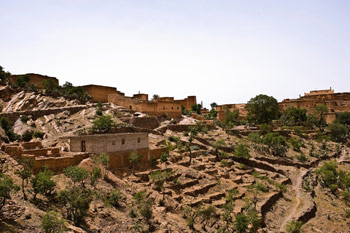
It is true that certain Moroccan banks have turned to Africa. I think it is a very clever thing to do. The outcome of this shift can only be positive. Africa is waking up economically. Its growth rate is one of the highest in the world. Its market offers numerous opportunities, and it is normal for Moroccan banks to export their services.
Of course they need to adapt their structure to best suit new environments. As for Crédit Agricole du Maroc, the combination between its commercial activity in compliance with strict security norms, and its social development mission through agriculture, makes it an interesting partner for numerous African countries. But Crédit Agricole du Maroc isn’t ready to grow internationally yet from a capital perspective, and we still have so much work to do within the Moroccan market. However, we can contribute to the development of banking structures adapted to specific countries.
Crédit Agricole du Maroc draws about 55% of its income from the agriculture sector, and 45% from other market segments. Will this change in the future, and what is the bank’s strategy in this regard?
Supporting agriculture and agro-industry will remain a central element of Crédit Agricole du Maroc’s strategy. First and foremost, because this sector has a huge potential, which will take part in Morocco’s future social and economic development. Besides, we must meet high profitability standards, and 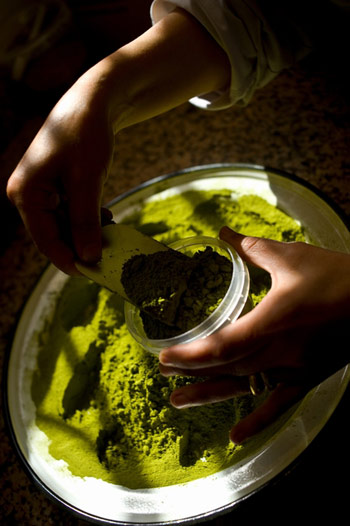 implement important security norms.
implement important security norms.
We need to expand into new markets in order for Crédit Agricole du Maroc to be most competitive: the corporate market (in which Crédit Agricole du Maroc already holds an important position), but also private individuals (this market being unexploited). The goal here is to increase penetration of banking services, and bring financial services to a large range of the rural population, as part of our public-service mission.
How precisely does the bank support cultivators and farmers? How does it promote rural areas?
Firstly, by making banking services available to them. Bank accounts make incomes secured. Secondly, through banks, private individuals can take mortgage loans, and therefore have access to better quality accommodation. They can also purchase household appliances for a better quality of life.
Lastly, cultivators and farmers are better insured, thanks to various insurance services and savings accounts. We accompany private individuals in life – particularly in rural areas – by bringing them services that have become basic services in other areas: accommodation, household appliances, insurance, etc.
You can visit www.fellah–trade.com.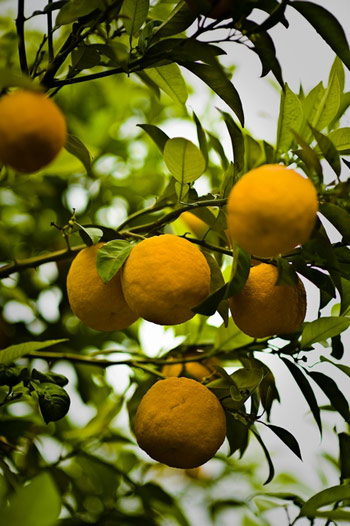
Do you collaborate with the Wali and local authorities?
Of course we also work from a regional perspective, because a region’s characteristics – and consequently its specific needs – may vary extremely. In this purpose, we collaborate with local councilors as well as the Ministry of Agriculture and Sea Fishing, which supervises Crédit Agricole du Maroc. Crédit Agricole du Maroc is in its 50th year: 50 years of experience and historic and social knowledge of each region’s specificity. With the ability to understand and adapt to each region, we can accompany them and support them better.
Crédit Agricole du Maroc obtained very good results in 2009, with a 36% increase in profit (306 million dirhams), which is superior to its Moroccan competitors. What is your strategy, and what are your challenges for 2011? What do you need to particularly work on?
Our first goal is to be the “Green Plan”‘s top collaborator (Plan Maroc-Vert). It is a project for the reorganization of agriculture in Morocco. The plan offers unprecedented economic opportunities. It also has an important social dimension. We want to play a decisive role in the project. In this purpose, Crédit Agricole du Maroc has set goals:
1) high standards in terms of governance and security norms;
2) sustainable growth and development, as part of our public-service mission, while ensuring high profitability. 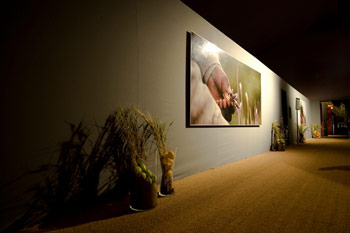
Does Crédit Agricole du Maroc promote the Green Plan and Morocco’s rural areas? Does it try to attract foreign investment? Does it support projects?
Crédit Agricole du Maroc’s strategy in promoting the Green Plan and accompanying investment adapts to specific fields: meat, cereals, citrus fruits, etc. For each field, we fund cooperation projects aiming for the field to become modern and efficient. This is to pave the way for export. We also support small cultivators and encourage them to take an active part in the development of their own field, instead of being left behind in the process.
Cooperation is one key concept on which the Green Plan is based. The Plan aims for important actors of a certain field to stimulate development, in which smaller cultivators will be involved. Crédit Agricole du Maroc’s efforts revolve around this same concept.
What do you think foreign investors can gain from Moroccan agriculture, and what do you think Moroccan agriculture can gain from foreign investment? In your opinion, what agreements can be made?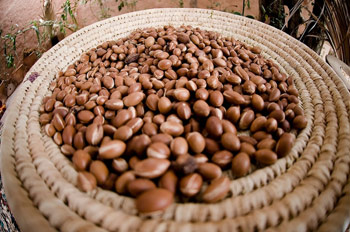
As you know, Morocco is Europe’s close neighbour. Morocco’s future depends on Europe; and Europe’s future is linked to its southern neighbours in some respects. Morocco has a tradition of agriculture and has developed an unquestionable know-how and technology. Morocco has a clear strategy for agriculture development, and Moroccan agriculture is now open to international investment, which is confirmed by the presence of foreign investors in all fields of Moroccan agriculture.
The sector of agriculture benefits from initiatives on the part of the government and politicians, and was allocated an important budget. I think bridges are to be built between Morocco and Europe (the European market being the main destination for Moroccan export), on the initiative of investors. On the other hand, Moroccan actors in the sector of agriculture must also contribute to the building of these bridges by modernizing their sector, for it to meet all the requirements for investment.